The Ikeja bomb explosions 21 years ago changed these people's lives forever
)
On January 27, 2002, Adebola Ademuyiwa Taofeek was a teenager living about 100 metres from the armoury situated at the centre of the Ikeja Military Cantonment in Lagos State.
His father was a military officer with over 20 years' worth of experience at the time. He was the last of five children and his mother was a loving, soft-hearted woman who cared for her family.

Their home was a cozy one, lit with rays of sunlight and the warmth of family, laced with the momentary aroma of food and very regular gust of noise from warring teenagers brimming with energy. His life was a dream, and his school was also situated inside the barrack – the life of a teenager couldn’t be better; no worries, just happiness.
The first ‘bang!’
Ayomide Tayo was studying in preparation for his mid-term test the next day when he heard a “loud bang” close to his house at Seinde Castillo street, LSDPC residential area in Oshodi, just north of the Ikeja Military Cantonment.

Ayomide says, “My sister came in and said there was smoke coming from somewhere. I guess people were looking at it; people were curious. I didn’t think too much about it, I continued reading.”
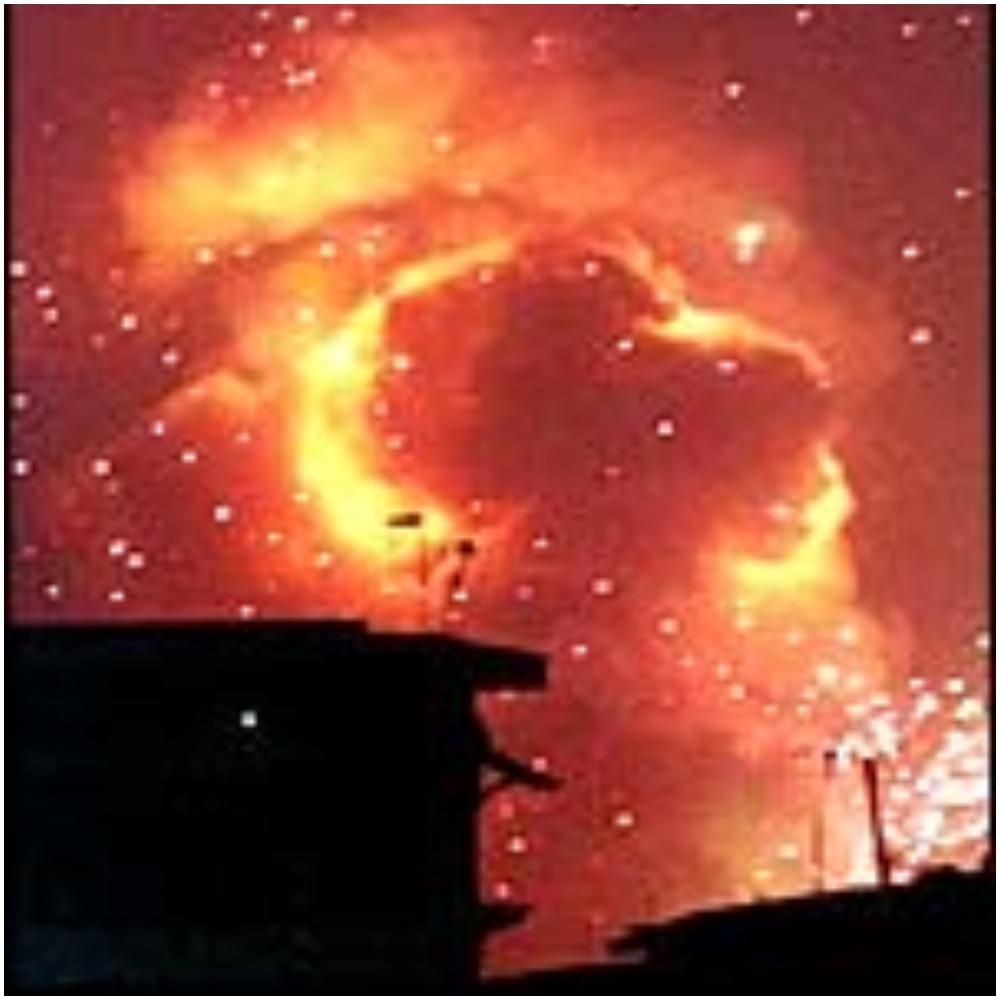
For Pelumi Mohammed, daughter of an Army Colonel (who later ascended to the role of a General), living in the same Ikeja Military Cantonment as Taofeek at the time, it was confusion and pandemonium.
They were watching TV and her parents were not around; they were at a function in Ikoyi, but she was at home with her three siblings, her maternal uncle, their chef and her uncle - chilling in the boy’s quarters with his friends.

She was just eight years old at the time and mobile phones were not commonplace at the time – they were only found on the hips of upper-middle class Nigerians who could afford them and their maintenance, supported by densely padded phone pouches.
Pelumi’s elder brother – who prefers to not be named - was confused, and faced with a huge responsibility, to deliver in the absence of their parents or risk the ‘unknown explosion’ consume him and his younger siblings – God forbid. He couldn’t afford that, especially after the events of September 11, 2001 – only four months prior – scarred America for life and is still fresh in the memory as a major terrorist infamy. This again was an explosion – Nigeria was on high alert.
The second ‘bang!’
Now a civil servant, working offshore, on January 27, 2002, Akeem Adewale Anifowose tells Pulse, "I was working as a photocopy machine operator at WYSE Associates, (an ICAN training school, behind St. Agnes Catholic Church) Mende, Maryland.
“The first explosion I heard came with power outage (my photocopy machine and electric light bulb went off). The time was 5:58pm. I thought there was a fault with the nearest Transformer, but the next explosion I heard almost knocked me off my feet.”
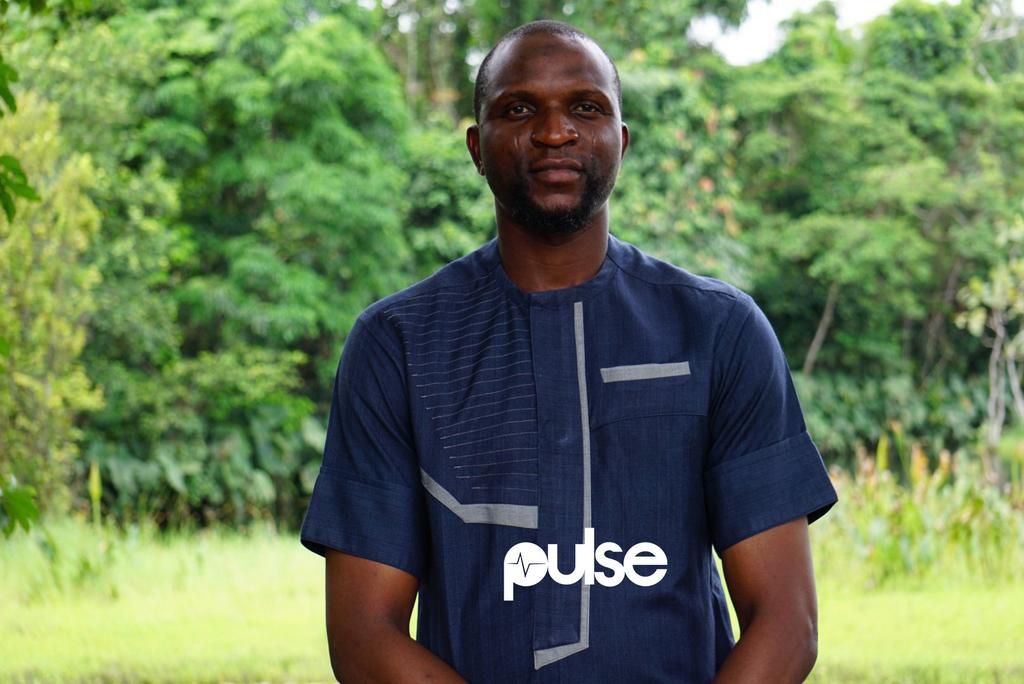
Mende is just a few hundred yards from Mobolaji Bank Anthony way – the origin of these explosions. Akeem was about to run away when he remembered that his cousin was receiving lectures upstairs. Alongside his cousin, Akeem stayed with his 73-year old uncle in Shogunle, Lagos.
His uncle’s wife was in church for evening Mass and they learned that while the tenants fled the house, his uncle stayed back and started to fetch water from the Lagos State Water Corporation (LSWC) tap outside the house.
The mayhem and confusion began and people started running, trying to save themselves as death is a cruel fate for young people with mobility and dreams.
Ayomide Tayo is the first of three children, followed by a young girl and boy in that order. While Pelumi’s elder brother, left the main building to call his uncle and look for their Chef who bolted leaving the three young children in the house, Ayomide had a decision to make.
Ayomide tells Pulse that, “People were running away from it away from it, running to our street. It was pandemonium and mayhem, people didn’t know what was going on.”
While Pelumi and her family were crawling through barbed wire fences to get away from the cantonment, she saw one woman crying, “My children; my children.”
In the same cantonment, Taofeek couldn’t, “Believe my father’s strength. Even though I was quite small at the time, he threw me over the fence without breaking a sweat.”
The explosions became more repetitive and prominent
Then, the explosions started, bombs began to go off, pandemonium ensued, the floor shook as the rhythmic stomps of people on it intensified and the explosions became repetitive. Ayo – who in hindsight regrets it - told his younger brother to run to their neighbour’s house about three minutes away; he got there safely.
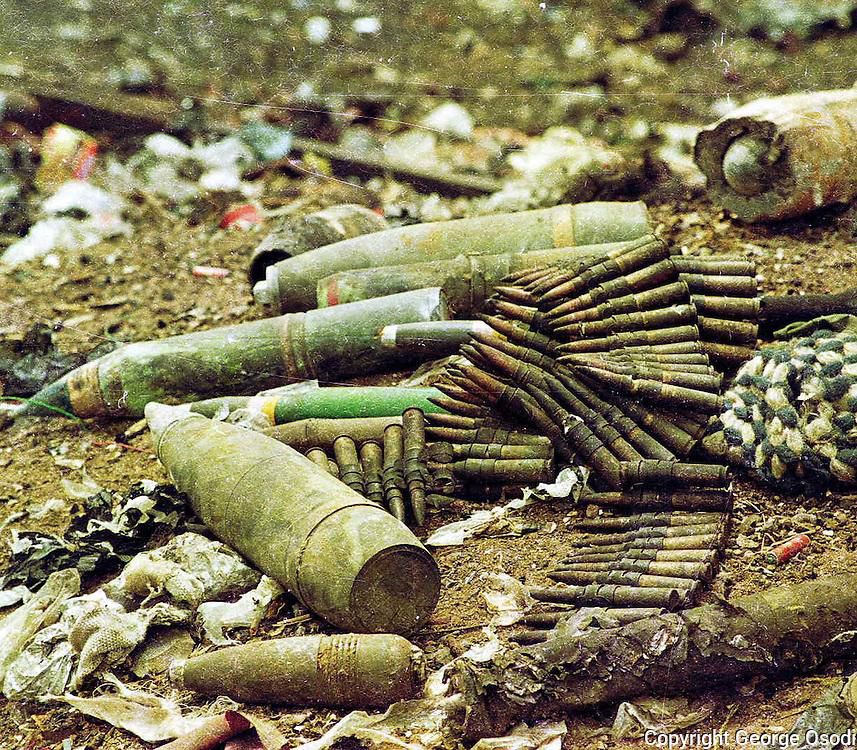
He also said that at this time, “The bombs were going off every second or every two seconds… You kinda feel like the bombs are coming closer to you and you don’t want to be in the line of fire.”
The bombs still didn’t stop, so Ayo and his sister also ran to meet his brother at that neighbour’s house. As they ran, they also saw other people running hard, screaming. The neighbour had a nine-month old son, and another man (who also went to the same church) in that compound had a heavily pregnant wife praying against a repetitive explosion – its origin, unknown.
Akeem, who lived on the South-Eastern side of the Cantonment says, “I was physically drained. My cousin had fever before we left home that day, so at a point I had to carry him on my back and run. We left the school compound at about 6:10pm from Mende, crossed a stream, and also crossed the Lagos-Ojota Expressway. When we got to a marshy/swampy area in Ketu Alapere, the tide was high, so water level was almost same height with the wooden bridge constructed by the community and water hyacinth and lilies covered everywhere.
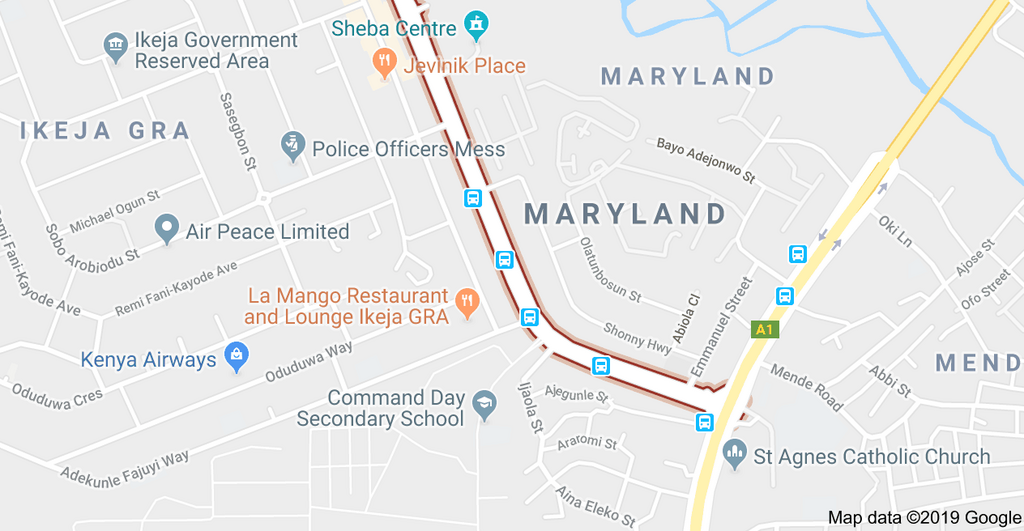
“The most memorable moment I captured was when a woman fell off the wooden bridge with her baby on her back. I jumped into the water (I was a good swimmer and I could tread water) to free the baby from her back and passed the baby to my cousin, who took off immediately because there was another massive explosion at that time. I managed to push the woman up and I climbed up, thanks to God, we reunited with my cousin and the baby at the end of the wooden bridge.”
Amidst the mayhem, and uncomfortable with their position as it felt like the bombs were still going off, they all – including the pregnant woman – ran through Oshodi, through the expressway and made for Ajao Estate. With the roads shaking, Ayo says of the Oshodi-Apapa expressway, “The expressway was mayhem and the steering wheels took over from people’s hands.”
Conspiracy theories as the chaos rumbled on
As with anything human, people had their take on things, with no evidence in sight. It also wasn’t helped by the happenings around the country and the world at the time. It was only four months of the infamous ‘9/11’ in the US; about 23 months-post year 2000 when a lot of Nigerians thought the world was going to end.
On getting to Ajao Estate, Ayo says, “I saw Christians preaching that it was the end of the world; I saw conspiracy theorists say it’s the Northern mafia/cabal that were pissed about some moves (then Nigerian President) Olusegun Obasanjo wants to make and that’s why they’re striking back; I saw Muslims coming together to pray in Arabic – it was crazy!
“All while people were running; you’ll see slippers on the road.”
Akeem on his part says, “It was when we got to Mile 12 under bridge around 8:30 pm that we got the news that it was not a coup or war. That was when we started heading back to Shogunle, through Ikorodu road, to Ikeja under bridge. We got home around 11:00 pm.”
What exactly caused the explosion that day?
Common knowledge ascribes the damage to the armoury explosion at the Lagos Military Cantonment, Mobolaji Bank Anthony Way, Ikeja, Lagos.
It was caused by an accidental detonation of a large stock of high-grade military explosives that started at the Ikeja Military, causing panic and setting people to flee on foot or scale fences for dear life.
This explosion then spread to burn down parts of Northern Lagos. Due to the ignorance of its origin and the happenings around that time, it created a panic that spread to other areas of Lagos - as some ran for survival, they ran into a concealed canal and weren’t to be seen alive anymore.
About 1,100 people were recorded dead that day; some from fire and destruction; others from the panic that made them stumble into a concealed canal and drown.

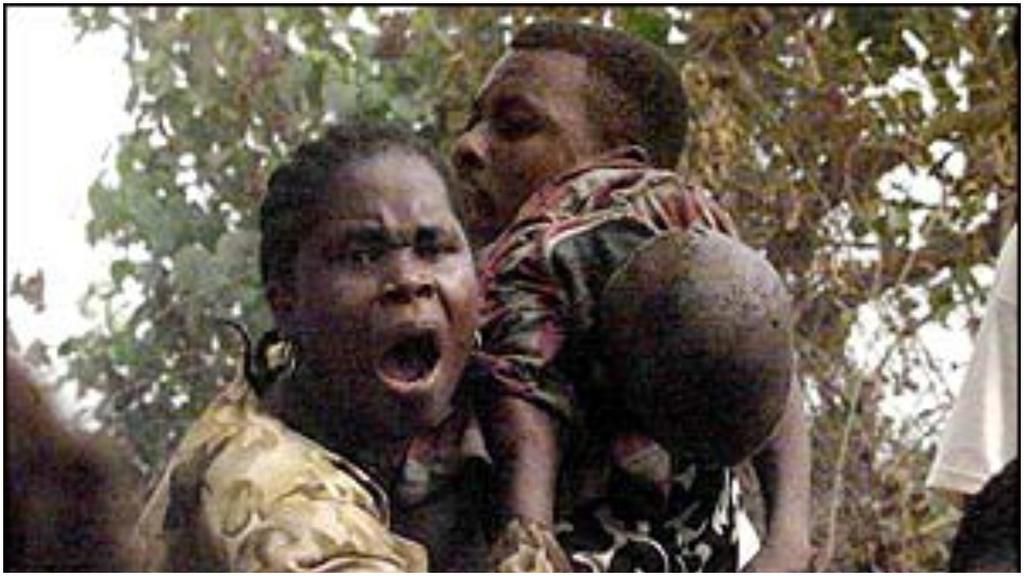
The event also displaced about 20,000 people and made a lot more homeless. A government inquiry into the Nigerian military found them negligent in maintaining the affairs of that cantonment and the armoury.
Then President, Chief Olusegun Obasanjo arrived the cantonment on January 28 and was met by aggrieved persons who looked to him for comfort and flood of soothing words and solution. But instead, with a caring attitude, he told the crowd that he didn't need to be at the scene of the explosions in the first instance.
Obasanjo also blamed the military high command for the blasts and demanded answers, "There is the normal thing that we do, or that the military will have to do, which is when a situation like this occurs, the military must carry out an inquiry," and on Monday, January 28, 2002, told hundreds of soldiers and their families that the military would investigate the cause.
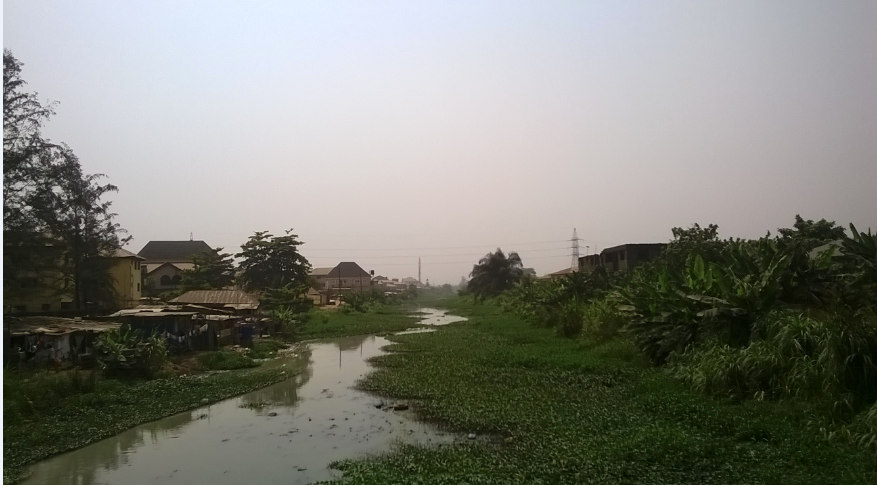
CNN's Jeff Koinange reported that, "Angry crowds jeered him (Obasanjo), asking why the government allowed the military to have such sophisticated weapons at the site."
"It was not immediately clear how many people died in the blasts themselves, though Army Brig. Gen. George Emdin told AP that there was "absolutely no one killed.""
On the evening of 28 January, 2002, George Emdin, the Commander of the Ikeja base issued a statement, "On behalf of the military, we are sorry, this is an old ammunition depot with high-calibre bombs ... some efforts were being made in the recent past to try to improve the storage facility, but this accident happened before the high authorities could do what was needed."
These comments irked a lot of people who learned that a small explosion had happened in the same cantonment a year earlier. On it, Akeem said, “The Nigerian Government disappointed me. The event exposed the insincerity and carelessness of the military. I am yet to accept the provoking apology made by the Government.”
On January 27, 2002, residents told CNN if the explosions had happened on a weekday - and not a Sunday, around 3,000 children, attending the three schools situated in the cantonment might have died or gone missing.
One soldier said, "I think those who say God is a Nigerian are correct."
"We are fortunate that most of the weapons were stored underground; otherwise, the whole of Lagos could have been on fire."
Aftermath
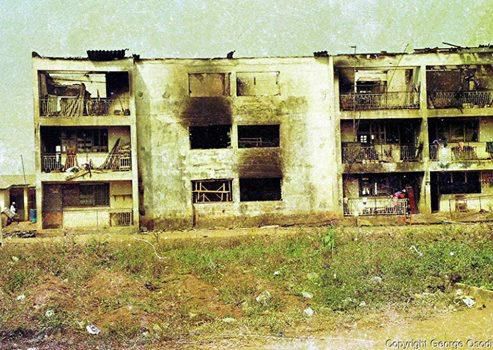
Due to the trauma and bad memories, Pelumi and her family never moved back to the cantonment – they stayed in a hotel for the seven days immediately preceding that day. Their house was not burnt, but the vibration from that explosion destroyed a lot of things. Since that day she has become afraid of sudden loud sounds. Akeem also became afraid of the sight of blood.

Taofeek also panics whenever he hangs around a lot of people or sees lot of people, indicating a hint of agoraphobia, Ayo felt morose for a second towards the end of his chat with Pulse. For a moment, he paused as a reminisced that day, before confessing that some events replayed in his head.
Akeem says, “I didn't know/hear of any casualty from that area, maybe the loss of lives at Oke Afa overshadowed whatever happened at Alapere. Thanks to God, we didn't lose anyone and nobody sustained any form of injury, not even our Uncle who did not leave the house. We only suffered asset damage - the window louvres and glass doors in some of the rooms were shattered. A tenant got his car windscreen damaged too.”
Taofeek suffered a great loss
His Dad took everybody from the cantonment to the Mafoluku side of the barracks, but they couldn’t find his girl cousin. Even worse, the incident led to his mother’s death – she was not in the barracks that day; she went for a function at Iyana-Ipaja.
Fake news got to his mum that everybody at the barracks had died from the explosion. To her, that meant her husband, five children and a cousin were gone. She panicked and couldn’t come back home. She couldn’t muster the strength to face this disaster that people claimed had taken her family.
According to Taofeek, while she found them seven days later, the damage had shot her blood pressure to unprecedented levels, which led to other health complications. She died six months later in July 2002. This has made Taofeek hate fake news passionately.
Like that was not enough, his dad also lost the bulk of his belongings to the fire and to looters, who pillaged the cantonment, even as bombs went off – his dad never fully recovered till he retired from the military a few years ago, after 36 years of service. He claims, “My Dad still makes reference to the loss he suffered that day, but that day also made him vow that come what may, all his children will be graduates.”
He made good on that promise, but he never remarried – the loss of his heartthrob still weighs heavy on him, despite being Muslim.
Taofeek’s family had to live off aid from UNICEF and Redeemed Christian Church of God who offered help for a while. “Due to the state of their families, some of my friends went back into the barracks to pick up fragments of bombs to sell in Alaba. Some of them lost their lives to this" says Taofeek.
Present day
Taofeek still blames the events of that day on “human error,” but he feels the government should have a database to compensate some people who lost their lives to this horror because, “Some people missed their way in life after these events.”
Even worse, Taofeek claims that, “The government only renovated the barracks 14 years after the bomb blast, while some people who suffered the brunt of this even lived in a slum-like environment.”
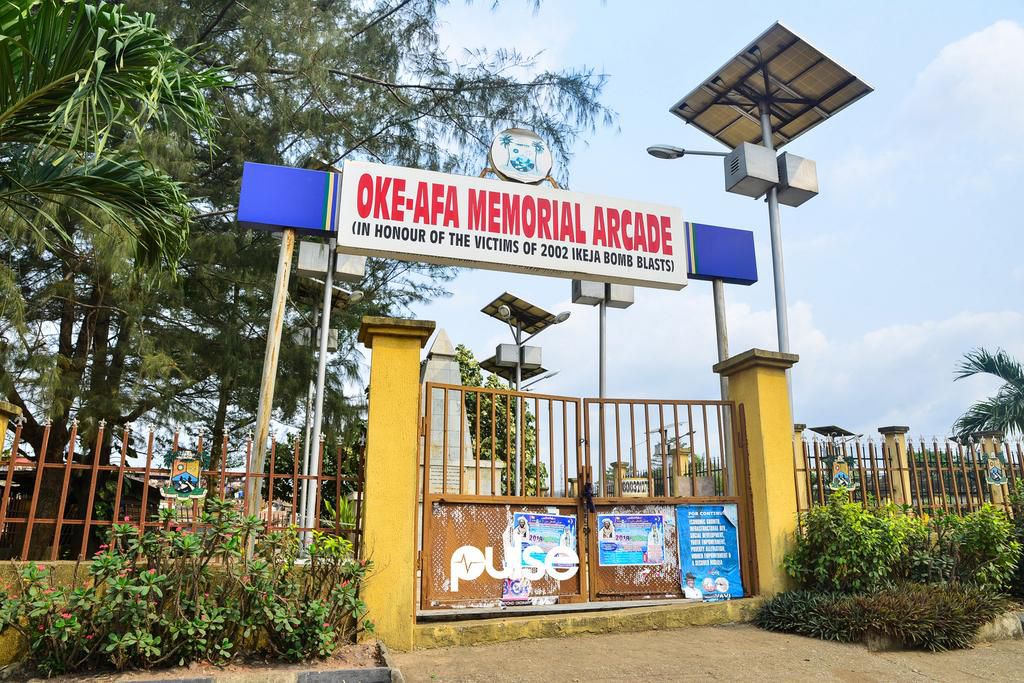
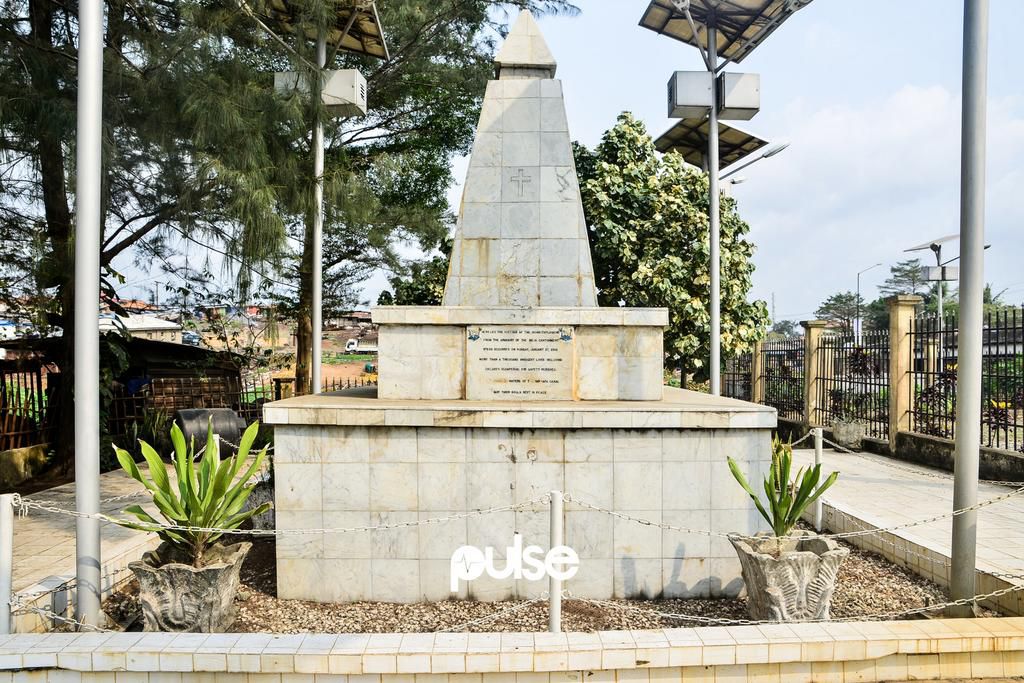
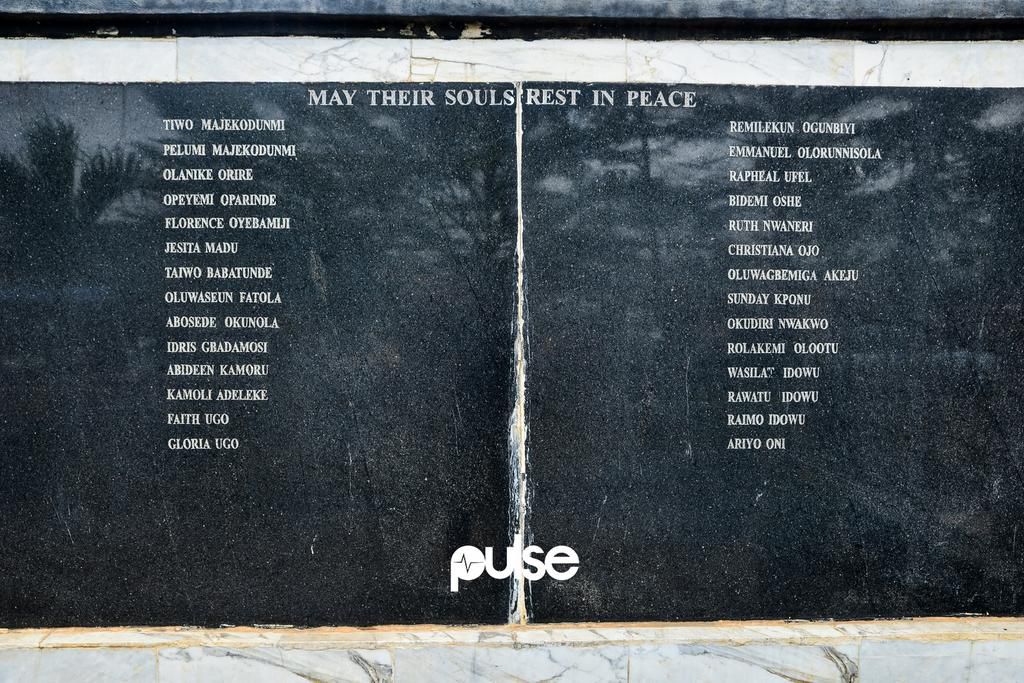
Like that was not enough, on a visit to the Memorial Arcade for the Ikeja cantonment bomb blast victims at Oke-Afa rd, Isolo, Lagos, Pulse discovered from locals that the place was kept relatively clean, but the fence behind the memorial park had fallen.
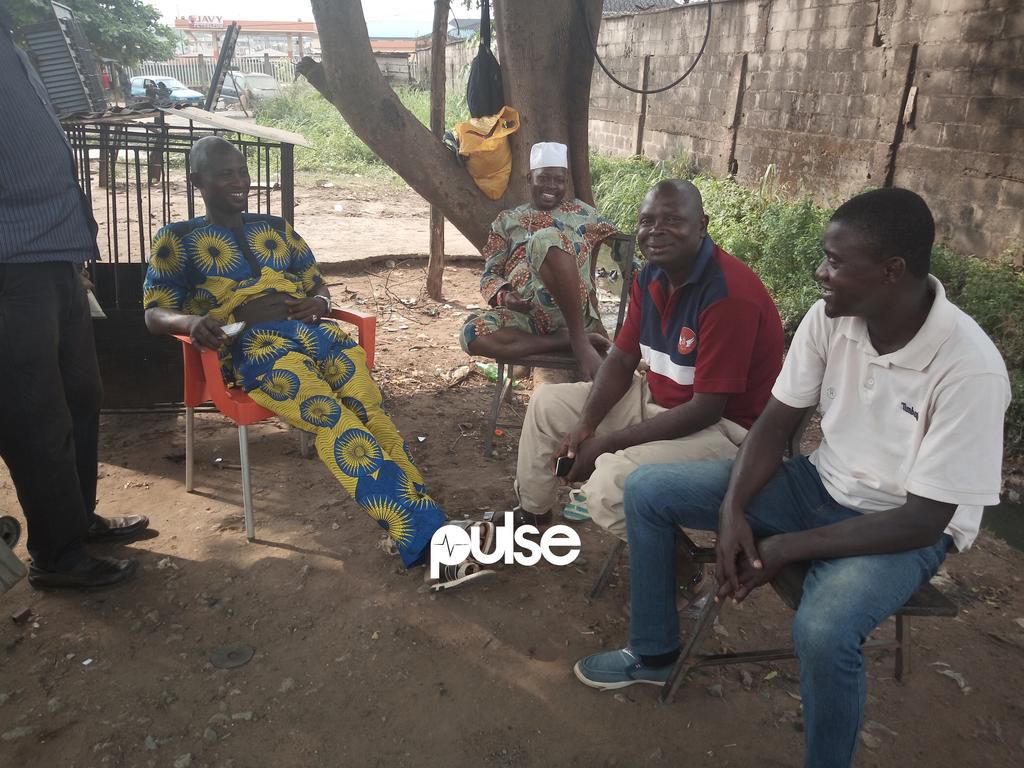
Israel, who works close to that memorial park told Pulse that, “A cleaner comes twice a week to clean the place and he still came today.”
However, when Pulse reached out to other people including a reliable witness who told Pulse that, “The cleaner and gardener for the memorial park complain that they have not been paid for a few months, and the solar systems that power the floodlights for securing the memorial park are destroyed.”
Pulse also gathered that while Former Lagos State Governor, Babatunde Raji Fashola used to hold a yearly remembrance for the blast victims, Governor Ambode never held one and from all indications, it looked like this year was never going to have a remembrance either.

Also in 2012, after 10 years of receiving nothing from the Nigerian government, Fashola also facilitated monetary compensation for the families who suffered losses from the Ikeja cantonment bomb blast.
As Akeem said, may the Almighty God continue to grant the souls of the departed much deserved rest and peace; may their families continue to find favour, comfort and peace and may the ones who struggle from the events of that day find their sweet haven.
)
)
)
)
)
)
)